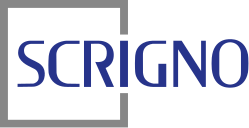
Our idea of the future begins with Corporate Responsibility. A focus on Quality and the Environment is essential for the Scrigno Group and translates into active policies guiding the company towards a continuous process of innovation with the aim of achieving ever-more ambitious goals. Sustainability is firmly at the centre of this process, with a particular focus on the environmental and energy performance of the production sites.
Throughout this process, and on a day-to-day basis, Scrigno demonstrates its sensitivity towards the principles of circular economy, reorganising its processes to monitor and reduce the consumption of raw materials and packaging, reduce waste,improve energy efficiency and reducing greenhouse gas emissions through a decarbonisation process that starts from within by involving suppliers along the entire supply chain, promoting the reduction of Scope 3 emissions upstream and downstream, and by achieving third-party certification of the company’s carbon footprint in 2024.
The Scrigno Group has for some time implemented an Environmental Management System based on the ISO 14001:2015 certification achieved by the company in 2021 and has implemented a risk-based thinking system.
Integrated into the business plan, the Scrigno Group has developed a sustainability strategy. Planning for sustainability means putting into practice a vision of a company’s future, but above all, it means contextualising it within a defined system with a mindset that can activate true collective growth, encompassing customer outcomes, environmental improvements and financial results.
The Scrigno Group promotes this pathway by assuring it:
– is embedded throughout the value chain;
– ensures compliance with applicable laws and international standards of conduct;
– takes into consideration the expectations of the various stakeholders;
– can contribute to sustainable development, including health and well-being of the environmental and social ecosystem.
On 16.12.2022, Directive n. 2022/2464 as regards corporate sustainability reporting was published in the Official Journal of the European Union – the Corporate Sustainability Reporting Directive, hereinafter CSRD, amending EU Directive 2013/34, concerning the obligation of disclosing non-financial information for large companies.
The Corporate Sustainability Reporting Directive (CSRD) emerges within a global landscape that has long been in flux regarding sustainability issues, pathways, and initiatives. A landscape that marked a significant turning point in the latter months of 2022, particularly regarding Europe’s role with its unwavering commitment to achieving climate neutrality by 2050, placing decarbonisation at the forefront.
The CSRD introduces the new concept of “double relevance” (or “double materiality”) under which companies will have to provide information about the impact of their activities on people as well as on the environment (inside-out approach), and about the way sustainability issues can affect them in return (outside-in approach).

The Scrigno Group has decided to be ahead of the curve and has already begun a process to produce a Sustainability Report with an integrated double materiality as early as 2025, in order to ensure:
Transparency
The activities of the companies within the Group represent the main interest of our stakeholders. Transparency of non-financial information is key to tackle greenwashing.
Engagement
The need for a greater dissemination of non-financial information has emerged. This, together with financial information, forms the foundation for investment decisions.
Raising awareness
The rise of sustainability issues raises awareness within the Group and the companies that belong to it. A stakeholder engagement process helps identify investor needs and expectations in order to integrate them into the Group’s strategy.
Also, operating procedures have been introduced to guarantee greater safety to personnel, in conformity with the upcoming ISO 45001 certification.

